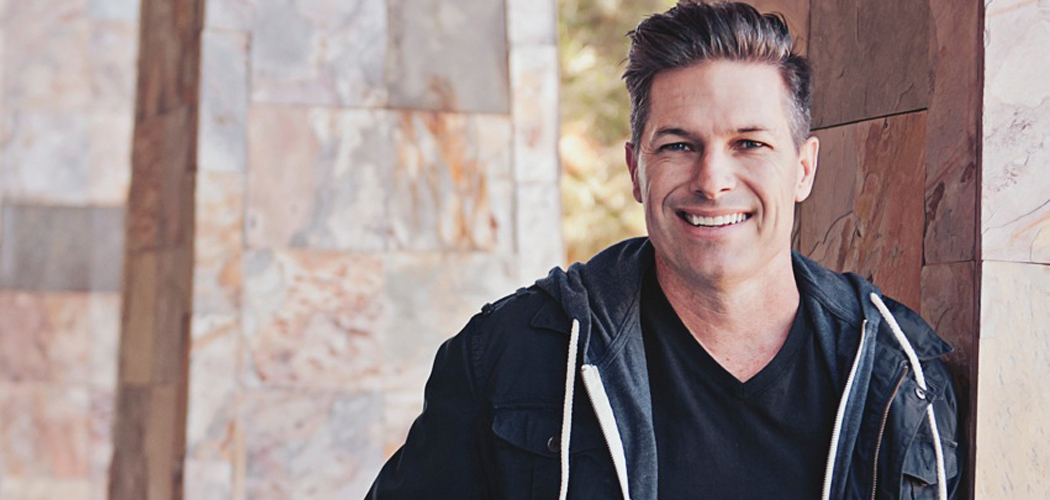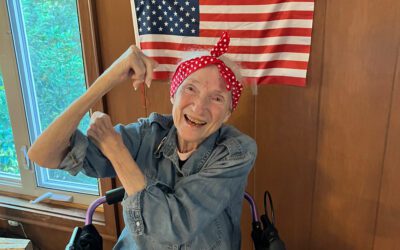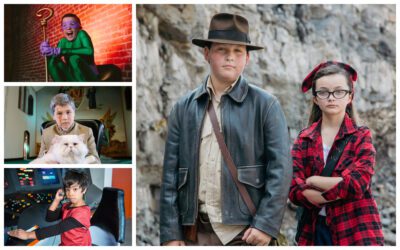[title subtitle=”words: Marla Cantrell images: courtesy Palmer Chinchin”][/title]
Palmer Chinchen lives in Arizona, in a place where the stars in the big night sky are compromised by the shimmer of the big, bright city lights. But he grew up in a much different place, deep inside Africa’s Sinoe jungle. His friends were members of the Sapo tribe, the Barefoot People of Liberia. He was six when he, along with his five brothers and sisters, arrived in this foreign land with his missionary parents. He tells the story incredibly well in his book, Barefoot Tribe. The book opens with a single-engine Cessna dropping his family off in a place so remote there was no electricity, no running water. He talks about his pet chimpanzee named Tarzan, the nights spent reading by kerosene lamps, the creek water they boiled in a big black pot so they could drink it and not get sick.
It is hard to imagine what it felt like to arrive in this distant place. Perhaps being so young helped Palmer acclimate to a life so different from the one he’d lived in Picayune, Mississippi. There, his parents pastored a Presbyterian church, and during the church’s first ever conference on missions, one of the speakers from Africa asked who would answer the call to the mission field. His parents believed he was talking to them, so they left their life in the Deep South for a life in the bush. Their youngest daughter was only two, and there was plenty of fear. Malaria was and still is the number one killer in Liberia, and children are particularly ill prepared for the ravages its fever brings.
Going there changed Palmer’s life. Most of his friends were shoeless. There were parasites that would find a home through tiny cuts on the kids’ feet, would enter their bloodstreams, would pull so many nutrients from their bodies their hair would turn orange. Their urine turned rust colored because they were bleeding internally, their bellies grew large from bloating. As he talks about them, he grows somber. The average life expectancy in Liberia at that time was thirty-three, and by the time he’d finished high school, most of his friends from the bush had died.
One of his most vivid memories of that time was the afternoon his family’s hut burned to the ground, his older sister fleeing without her shoes, and how her best friend, a girl from the Sapo tribe, came to comfort her, slipped off her own shoes and put them on Palmer’s sister’s feet.
The act was one of love, but also of sacrifice, potentially a life-threatening sacrifice, and Palmer never forgot it. When he finally returned to the States to live, he was struck by the feeling that many Christians in this country weren’t living the life they were called to live. “For the last hundred years we equated becoming a Christian with going to church, and we used language like, ‘come to church,’ or ‘bring them to church,’ and really the church is God’s people who are sent out to our neighborhoods, and then to our own communities and to the rest of the world. ..We make the Good News of Jesus about something that just happens internally and personally to us as individuals, and it’s ethereal, and we know that after we die we’ll go to Heaven, and we’ve missed the ‘doing’ component. The gospel includes living the Good News of Jesus, and that includes going into the blighted neighborhoods. If we’re not doing that, then the gospel really hasn’t taken root, and Christians don’t like hearing that.”
As he considered all these things, he began plotting how to make a radical change. He became the pastor of a church called The Grove, in Chandler, Arizona. He spent a lot of time talking to his people about how to live the Word of God. He told them it was impossible to separate Jesus from justice, and there is injustice in people living in extreme poverty. The subject of shoes kept surfacing. It’s estimated that 1.3 million people in this world live without even one pair. The average American has nineteen, many tossed to the back of a closet, forgotten, collecting dust.
Because of that disparity, Palmer asked for help. One Sunday in September, 2009, he told his congregation to wear their best shoes. At the end of the service, he asked them to leave those shoes at the altar. Two thousand pairs of shoes were left, and those were shipped to Africa. The parishioners spent the remainder of the day barefoot. They learned what it felt like, stepping on a sharp object, getting turned away from restaurants because they were shoeless, the pain of walking on hot sidewalks. The next year, The Grove had another Barefoot Sunday, collecting 5,000 pairs of shoes. Palmer says, “I had never heard of a church anywhere trying something like this, but I was convinced that leaving church barefoot would help our people get that this world is a broken place. And understand the profound truth that with your one and very important life you can change what is not right in this world—if we care less about things like shoes and care more about people who hurt.”
Soon, others were hearing the story of the shoeless church. Pastors from Florida, Illinois, and Maryland wanted to have Barefoot Sundays of their own. A college in Ohio asked the entire student body to give up their shoes. Jennifer Preyss, a twenty-something newspaper reporter in Victoria, Texas contacted Palmer and told him she was asking the entire town to donate. TV stations got involved. Twenty churches, five schools, a synagogue and a mosque joined in. On the appointed day, the truck that was typically used to deliver newspapers made its rounds, and then returned to pick up the thousands of shoes the town had collected.
Jennifer’s success thrilled Palmer, as well as the members of The Grove. One hundred and two of the church’s members planned a trip to Africa, where they split up, going to Liberia, Uganda and Milawi. By that time they had 10,000 pairs of shoes. On that two-week trip something miraculous happened. They rented motorcycles that were used as taxis and strapped their cargo on the back. They went deep into the bush where there were kids who’d never owned a pair of shoes. One of The Grove’s volunteers was a college student named Dustin, who met a village chief in Liberia, when he and eight others rode up on their bikes. “Dustin said the chief told him, ‘Now I know Jesus Christ is alive, because the only way you could have come to my village with more than enough shoes for all my people is because Jesus Christ sent you.’”
As Palmer is telling the story, he is looking out the window of his church office at The Grove. A shipping container sits outside, filled almost to the brim with even more shoes for Africa. To date, the church has sent 30,000 pairs of shoes, and the need is even greater with the massive 2014 Ebola outbreak in West Africa that has taken more than 8,480 lives and infected as many as 21,400. Sturdy shoes – many who have any shoes at all have only flip flops – can keep people safe from contagious bodily fluids in outhouses and in the villages where the disease has devastated the area.
Palmer considers it an honor to be able to help, and he is humbled by his congregation, and the thousands of others who have taken up the cause and sent shoes on their own. He wants every Christian to know that spreading the Word of God is a practical thing. “It starts with your next door neighbor,” he says, “showing them the love of Christ. If you have a neighbor or co-worker who can’t pay their rent, rally Christians to do that for them. If someone’s sick and can’t pay their medical bills, let’s meet that need. It starts there. Every community has parts of town people avoid. Let’s change that; let’s start loving the people there.”
That’s what The Grove has done in Chandler, Arizona, painting houses, feeding the hungry, meeting the needs of those desperate for help. And in doing so, Christ is being introduced to those who might otherwise never meet Him. He looks back on his life, on the decision his parents made to leave Mississippi and walk into the jungle. If they hadn’t done that, if their house hadn’t burned to the ground, he’d never have seen his sister’s friend take off her shoes and offer them up, and the Barefoot Tribe might never have been born.
Palmer Chinchen, PhD, author of Barefoot Tribe, Take Off Your Shoes and Dare to Live the Extraordinary Life, will be speaking on March 15 at 4 PM at First Presbyterian Church, located at 116 North 12th Street, Fort Smith, Arkansas. 479.783.8919 | 1pres.org
The event is free and the public is welcome to attend.




